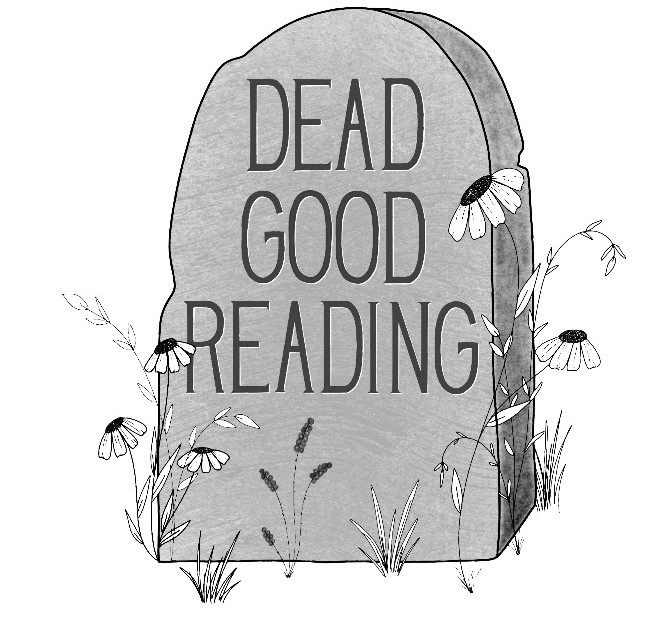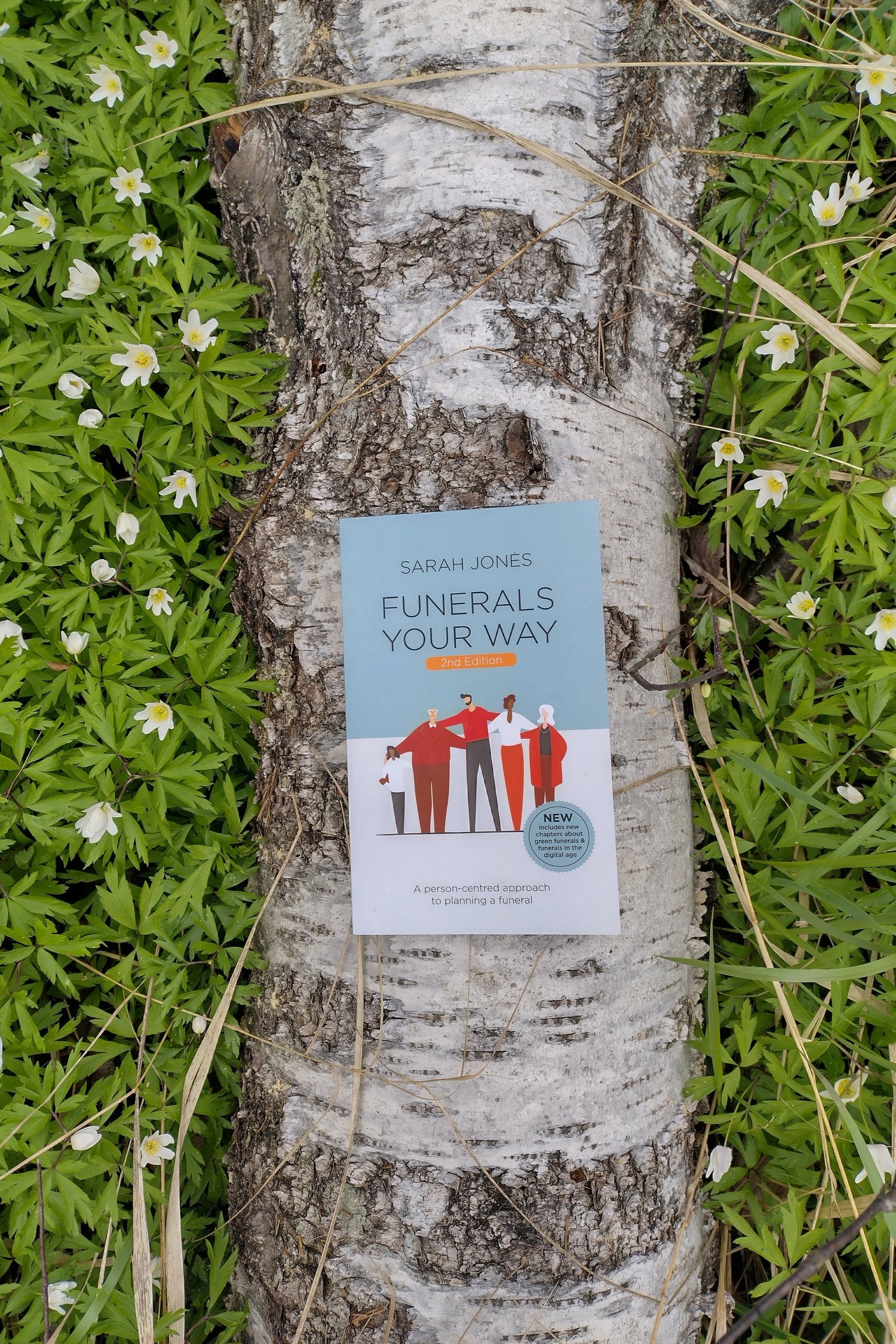Funerals your way is a bit different compared to the books I have read so far for my blog. Sarah Jones kindly sent me a copy of her book, which is a compact guide book, or self-help book, for anyone needing to plan a funeral, or anyone contemplating what their funeral, or that of others, might look like. Jones self-published the first edition, but this second edition of Funerals Your Way has found a home at Fisher King Publishing.
In plane language Jones describes both what typically happens during funerals, but also how funerals can be personalised, and that it is perfectly ok to do or not do certain things. I found it very refreshing (and honest, since she is a funeral director herself) that she mentions you do not need to use a funeral director. Indeed, there is no law in the UK requiring this, but I suspect many people like to be guided by someone else in this time.
“This book is designed to help people who are intending to use support of a funeral director. However, this is not essential. “”
— Funerals Your Way Page: 5.
Jones has provided 15 short chapters to help readers think about a myriad of things including the ceremony and what rituals to include both during the funeral and afterwards, as a form of memorialization, eulogies, types of coffins, burial or cremation, the location of the funeral and the food offered after the ceremony. Each chapter ends with text boxes with question prompts, so the reader can write some of their own reflections in the boxes if they wish.
Jones has shied away from the paragraph, and instead the book is a series of loose sentences. I think this is particularly helpful for people who are recently bereaved, who likely will be overwhelmed and don’t have the headspace to take in large amounts of information. The book is written in such a way that people can dip in and out of chapters. They can read a page, or 2, or even entire chapters. While the book is packed with important practically information, the layout is quite clever in that it doesn’t seem like a lot. Instead, all the chapters feel like manageable, short accounts.
The book is filled with little anecdotes, presumably from clients she has helped in the past. These little quotes show readers what others have done, and I think these personal accounts are very clever as they help readers think through possibilities based on real-life examples. This book would have been much drier if Jones had offered bullet point lists of possibilities. Instead, these stories bring the funeral alive (pardon the pun).
It made me reflect on some of the things I remember from the funerals I have attended. My cousin, who died when I was 16, was buried in a coffin painted the same turquoise as her recently refurbished kitchen, which she never got to enjoy because of her illness. We had gevulde koeken (a type of biscuit/cake) from a particular bakery during the funeral of my friend’s grandfather, because those were his favourite. We had two ceremonies (one in a church, one at the crematorium) during my grandfather’s funeral because my grandmother envisioned a church funeral as she had experienced as a child. This ‘church part’ started with my mother announcing to the gathering why we had congregated in a church, as none of us was particularly religious, before the priest took over and did his priestly things. This service was not at all what my grandmother expected it to be. As I sat next to her during the ceremony, she whispered that for her own funeral we could just skip the church bit and do the personal bit in the crematorium. Which we did a couple of years later, and I always like to think that my grandmother basically had a trial run of her own funeral and selected her favourite bits. Most of the funerals I have attended have been stream-lined Dutch crematorium funerals and, until I read the article in the Death Studies journal Mortality entitled ‘Postmodern crematoria in the Netherlands: a search for a final sense of place’, I had not realised that a lot of what I consider ‘typical’ (and perhaps even ‘typical Dutch’) has been influenced by the architects of Dutch crematoriums.
This is not a criticism, but Funerals your Way is clearly written for a UK audience. I am convinced that international readers will be able to get something out of this book, but a lot of the suggestions and ‘how-to guides’ reflect an English context, and quite a specific group within this context. Something I was missing was a broader discussion on different cultural backgrounds and religious conventions and how they might affect thinking about funeral ceremonies. While Jones hints at diversity, this is something she does not address in-depth. Having said this, I am also mindful that adding more specifics could have led to the stereotyping of particular cultural groups and belief systems.
In the section Spending Time with the Person who dies, I personally was missing the mentioning of keeping the body at home until the funeral. Most of the people who died in my close circle in the Netherlands, have been kept in the home up until the funeral. I understand the body is typically more absent in UK-based funerals, but a guide like this could also potentially open up the space to make the presence of dead bodies more acceptable (and show people that this is in fact a possibility).
Despite having lived in England for four years, and one of my dear friends being a celebrant, up until reading Funerals your way I had not understood what is meant by a committal:
“When people speak about a committal, they are usually referring to one of two things.
They might either be talking about the final location where the body is placed (for example, the grave) or referring to the final words spoken at the end of the funeral service.”
— Funerals your way. Page:35
Examples like these show how helpful Funerals Your Way can be for those having to organise a funeral. Every industry has a lot of jargon and internal logics on how the system works and what can and cannot be done. Jones helps to explain and unravel some of the terms used by death professionals, and hands readers the tools and permission to think about they funeral they would want, which might not be the funeral that is ‘typical’ and might not follow social conventions. Funerals your way is a helpful starting-point to kickstart thinking about what ‘your way’ actually is.
Sarah Jones is a funeral director and started Full Circle Funerals in 2016. Visit her website for more information about the book and her work.


Leave a Reply